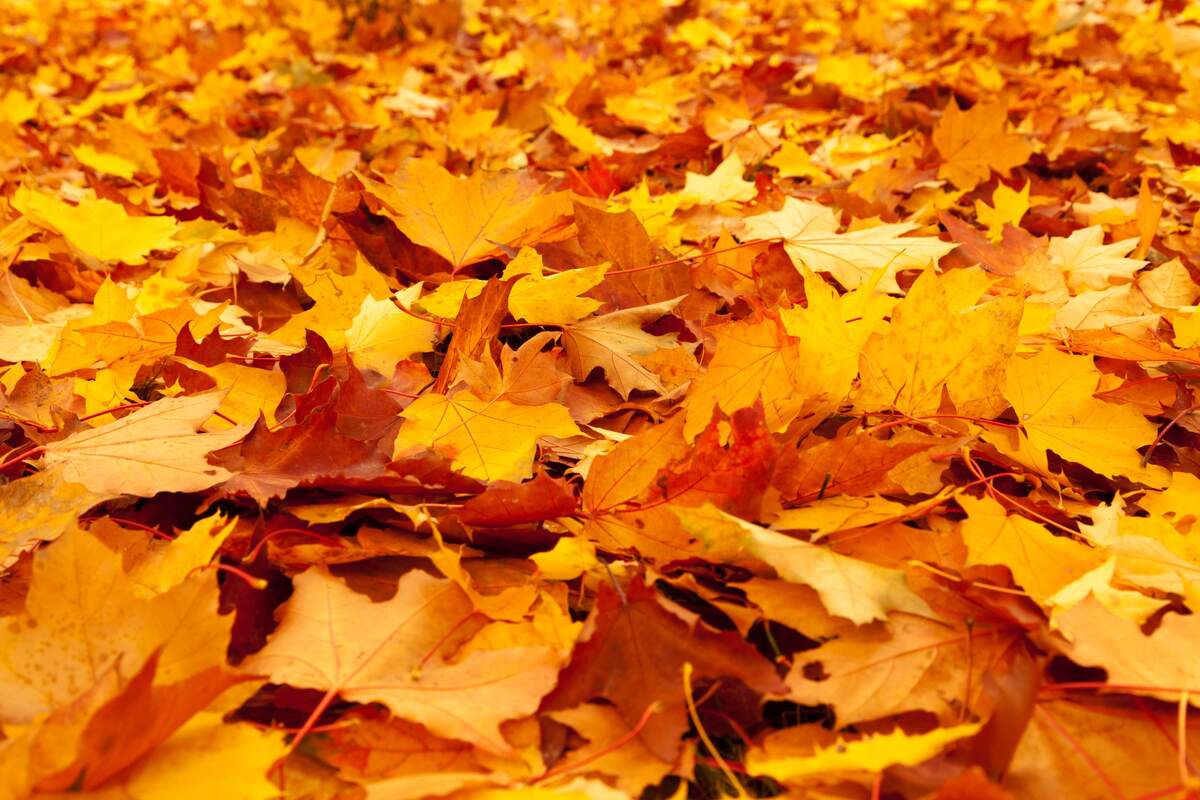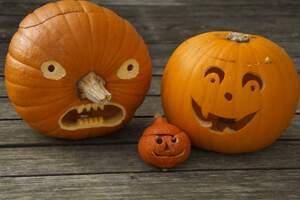

Samhain
Also known as
All Hallows' Eve
Calan Gaeaf
Feast of Apples
Feast of Souls
Feast of the Dead
Hallowe'en
Hallowmas
November Eve
Observed
annually on October 31st
Dates
Tags
Federal & Official
Food & Drink
Fun & Games
History & Culture
Hashtags
#Samhain
#AllHallowsEve
#CalanGaeaf
#FeastOfApples
#FeastOfSouls
#FeastOfTheDead
#Halloween
#Hallowmas
#NovemberEve
Sources
Samhain (pronounced "Sow-win" or "Sah-ween") originated as an ancient, pre-Christian Celtic spiritual festival of the dead. It was believed that the souls of those who had died during the previous year traveled to the otherworld on the day, and that they could mingle with the living while on their way. Meaning "Summer's End," it was as one of four yearly Celtic fire festivals that divided the year. The most significant of the four, it was held between the Fall Equinox and the Winter Solstice. As November 1 was seen as the New Year and the first day of winter, Samhain took place on what was considered New Year's Eve. During it, the fires in the hearths of homes were let to burn out, the year's harvest was gathered and stored, and livestock were brought closer to home and secured. Following the harvest, a community fire was lit, by using a wheel—which represented the sun—that caused friction and sparks. Cattle were sacrificed at the fire, and the fire was believed to help the dead on their journey to the otherworld. Flames were taken back to houses, and hearths were once again lit.
Samhain originally lasted three days and three nights. It was required, and people had to show themselves to kings or chieftains. If they didn't participate, it was believed they would be punished by the gods with illness or death. In Ireland, commanders and soldiers had thrones prepared for them for the holiday. If people committed crimes or used their weapons on the day, they could be given a death sentence. Offerings were left outside for fairies, and Celts would dress as animals or monsters so that fairies wouldn't kidnap them. Various monsters and other myths were associated with the day.
By the Middle Ages, the fires associated with day became known as Samghnagans. They were started nearer to farms than before, and the hope was that they would protect families from witches and fairies. Jack-o-lanterns began being carved out of turnips, and later out of pumpkins; they were filled with coal and attached to sticks and strings. In Wales, violent games where men threw burning wood at each other took place, and fireworks were also set off. In Northern England, parades with noisemakers were held. The "dumb supper" tradition also began at this time, where a meal was eaten and the spirits of ancestors were invited to join and were interacted with. Children played games to entertain them while adults told them about what had happened during the previous year. Cakes or other food and drink were left out, and doors and windows were left open so that spirits could come in and eat them.
With the spread of Christianity, church leaders worked to reframe Samhain as a Christian celebration. Christians saw the Celtic deities as evil and tried to rid the world of these pagan beliefs. In the fifth century, Pope Boniface moved Samhain to May 13 and designated it for celebrating martyrs and saints. Still, the fire festivals of harvest time continued being celebrated. Then, in the ninth century, Pope Gregory IV moved Samhain back to the time of the fire festivals: November 1 became All Saints' Day and November 2 became All Souls' Day. The ultimate goal was to replace Samhain, although this didn't completely happen. October 31 became known as All Hallows Eve—Halloween—and traditional pagan practices were still part of it, such as the belief in the wandering of the dead. Many practices now associated with Halloween, such as trick-or-treating, the wearing of costumes, carving pumpkins, bobbing for apples, and pranks have their roots in Samhain.
Today, Samhain is a pagan religious festival, celebrated from sunset on October 31 to sunset on November 1. It welcomes in the harvest and ushers in "the dark half of the year." Those who celebrate it believe that it is a day when there is less of a barrier between the physical world and spiritual world, allowing more interaction between humans and spirits of the "otherworld." Some open a window or door that faces the west and put a candle by it to help guide the dead back home. Some pagans hold Witches' Balls full of music and dancing. They also associate the day with bonfires, healing, and thanksgiving.
It is one of the "Greater Sabbats" during the Wiccan year, marking the death of the Sun-God. With the rise in popularity of the Wicca religion in the 1980s, Samhain reemerged as a holiday tied to pagan roots. Seen as the "passing of the year" by Wiccans, it includes fire ceremonies, the honoring of ancestors, and celebrations similar to Halloween. Other specific pagan groups also mark the day. Druids mark it by holding a bonfire and celebrating the dead and communing with them. Celtic Reconstructionists are pagans who adhere to Celtic traditions. They call Samhain "Oiche Shamhna" and put juniper decorations outside of their homes. They also make an altar for the dead and hold a feast at it in honor of deceased loved ones.
How to Observe Samhain
One way you could observe the day is by celebrating it in a way similar to how the ancient Celts did, with bonfires and the harvesting of crops. Another way to observe could be to participate in some of its rituals that are now part of Halloween, such as trick-or-treating, costume-wearing, and pumpkin carving. You could pick up a book about Samhain to get some more ideas.
If you are a Wiccan, a Druid, or a Celtic Reconstructionist, you could observe the day as your religion does. For example, Wiccans celebrate with fire ceremonies and by honoring their ancestors; Druids hold bonfires and commune with the dead; and Celtic Reconstructionists hold a feast in honor of their deceased loved ones.





















